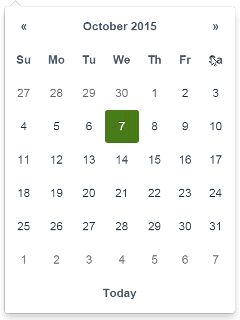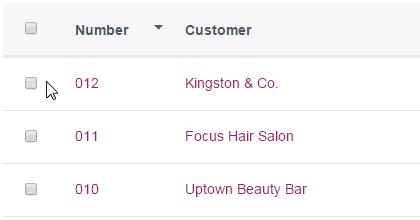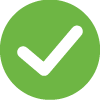- Created by admin, last modified by AdrianC on Oct 29, 2018
https://help.myob.com/wiki/x/noER
How satisfied are you with our online help?*
Just these help pages, not phone support or the product itself
Why did you give this rating?
Anything else you want to tell us about the help?
Welcome to MYOB Essentials! We know you're excited to explore all the great features in your new product, so we've put together this page to explain how to get around.
There are some features that appear on every MYOB Essentials page. These are:
Links on each page
Links at the top
At the top of each MYOB Essentials page you'll find a menu bar with 2 important links on the far right side:

- Switch businesses—click to view your MYOB Essentials businesses. You can also add a new business or switch to an existing one from (that you are signed up for). For more information see Using multiple businesses.
- Settings menu—click your business name to view the Settings menu. From this menu, you can access various settings (such as your Business details, GST settings and Import/Export), details about your subscription, and your accounts list. You can also view your serial number and log out of MYOB Essentials. For more information, see Settings.
Links at the bottom
At the bottom of each MYOB Essentials page are the following links:
- Privacy policy—click to view the privacy policy statement for MYOB.
- About us—click to find out more about MYOB.
- Contact us—click to find out how to contact the MYOB Essentials team.
MYOB Essentials menu
You'll use the main menu bar to access most areas of MYOB Essentials.

If you click an item on the menu bar that has an arrow (  ) next to it, a list of related options appears. You can then click any of these to go directly to that section.
) next to it, a list of related options appears. You can then click any of these to go directly to that section.
Use this menu item or option… | To do this… |
|---|---|
| Dashboard | View the dashboard, which shows a snapshot of your business. |
Sales
|
View the list of quotes created in MYOB Essentials |
| View the list of invoices created in MYOB Essentials. |
| View a list of your items, which are products or services that you buy or sell. |
| Create invoices to send to your customers. |
| Enter a payment made by a customer for an invoice. |
| Create invoice returns—customer credits or refunds for goods returned, services not used or received. |
| Apply a customer return to an invoice or refund the money to a customer. |
| See a list of your sales history for a specified period of time. |
| Send statements to your customers showing their current balance. |
Purchases
|
View the list of bills recorded in MYOB Essentials. |
| View a list of your items—products or services that you buy or sell. |
| Create bills to record the purchases you make from your business suppliers. |
| Enter a payment for a bill. |
| Create a return for a supplier—returns are credits or refunds for goods returned, services not used or received. |
| Apply a supplier return to a bill or record it as a refund from a supplier. |
| See a list of your purchase history for a specified period of time. |
Banking
|
View all the bank transactions that have been brought in on bank feeds or imported manually using bank statements. |
| Manually reconcile transactions that won’t be matched to an imported bank transaction. |
| Set up the rules you use to automatically allocate imported bank transactions. |
| Enter withdrawals and payments that are not associated with your business suppliers. |
| Enter deposits received from sources other than customer sales. |
| Record any transfers you’ve made from one bank account to another. |
| View transactions on each of your bank accounts over a specified period. |
Contacts
|
View a list of your contacts—customers, suppliers, employees or general contacts. |
| Create a new contact. |
Payroll
|
Open the pay centre screen, where you can select dates and employees, and do the pay run. |
| Get a file containing all of your contribution data that you can use to make contribution payments through MYOB's super portal. |
| View a list of your employees. |
| Print the reports you need to lodge with the IRD each month—Employer deductions (IR345), Employer monthly schedule (IR348) and KiwiSaver employee details (KS1). |
| View, print or email individual employees’ payslips and view a summary of each of your past pay runs. |
| View a summary or detail report of your payroll over a specified period of time. |
| Produce PAYG payment summaries for your employees and lodge them electronically with the ATO. |
| View and change your payroll settings, including which bank account you use to pay wages, payslip display options, and payslip email settings. |
Reports | View a list of all the reports you can create in MYOB Essentials. |
| In tray | Upload your supplier invoices to your In tray and save time on data entry by using them to create bills. For more information see Working with In Tray documents. |
| Switch businesses | Click to view your MYOB Essentials businesses. You can also add a new business or switch to an existing one from (that you are signed up for). For more information see Using multiple businesses. |
| Your business name | Click your business name to view the Settings menu. From this menu, you can access various settings (such as your Business details, GST settings and Import/Export), details about your subscription, and your accounts list. You can also view your serial number and logout from MYOB Essentials. For more information, see Settings. |
Help & Support
|
View this help centre. The help centre will open at a help topic that is relevant to your current MYOB Essentials page. |
| Open the getting started panel and view a quick tutorial of the features of the current MYOB Essentials page. |
| Visit the MYOB Essentials videos page and watch video tutorials for different features and concepts. |
| Visit the MYOB Essentials blog, to learn about new features and other topics of interest to MYOB Essentials users. |
| Visit this help centre. The help centre will open at its main page where you can search, browse or contact support. |
There are also features that you can use on many pages. For example:
Using the calendar

The calendar makes it easier for you to enter dates. For example, suppose you’re entering a sale and have promised the items to the customer on the last Friday of the month. Rather than figuring out the date and entering it manually, you can use the calendar to quickly select the date.
To view the calendar, select the icon ( ) at the right of any date field within MYOB Essentials. The calendar contains the following controls:
—click to go back one month.
—click to go forward one month.
 —click to select today’s date.
—click to select today’s date.- List of months and years—click the current month and year to select from a list of months in the selected year. Click again to select from a list of years.
Searching and filtering

Most MYOB Essentials pages have a search field. As you type your search term, the list on the page is updated to match your text. You can also choose from the filters that are next to the search field.
Use searching in combination with sorting
If searching and filtering gives you a long list of results, you might want to sort the list by one of the column headings. For more information see Sorting by column.
Sorting by column

By clicking a column heading, you can re-sort the information in the list by that column. For example, in the contacts list, you can click the First Name column heading to sort the list in alphabetical order by contacts’ first names.
Selecting and deselecting options

You can select options or list items by clicking on the checkbox to the left of them. A tick will appear in the checkbox ( ). To deselect an option, click on the checkbox again. The tick will disappear (
).
Month-end tasks
While you’re exploring MYOB Essentials, you may also want to have a look at our suggested End of period tasks.

 Yes
Yes
 No
No
 Thanks for your feedback.
Thanks for your feedback.